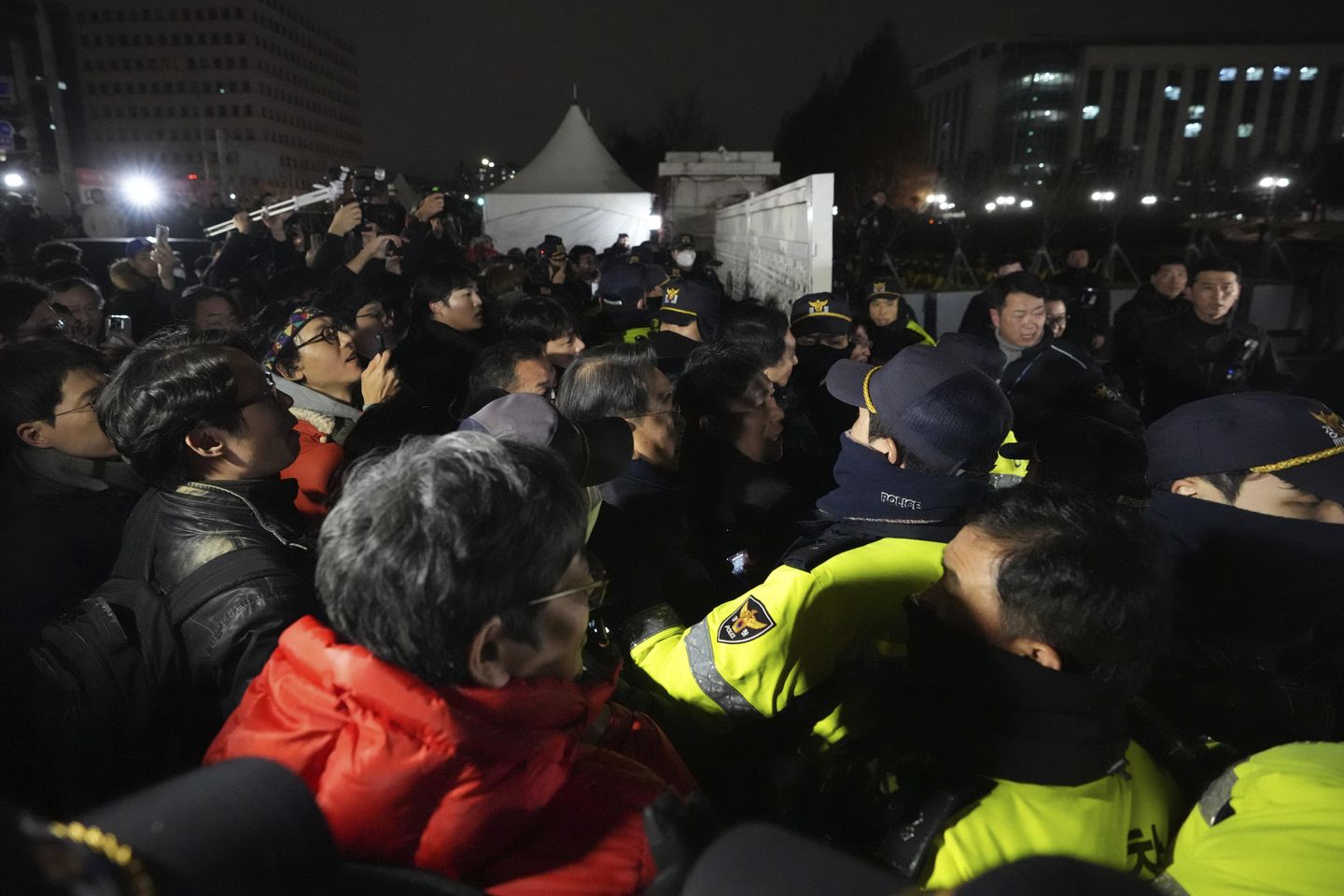In a surprising turn of events, the South Korean parliament has voted to defy President Moon Jae-in’s martial law declaration and immediately lift the restrictions imposed on the country. This decision comes after weeks of political turmoil and widespread protests against the government’s handling of the COVID-19 pandemic.
President Moon Jae-in declared martial law in response to the rapidly escalating crisis caused by the pandemic. The move was met with mixed reactions, with some supporting the president’s efforts to contain the virus, while others criticized the restrictions as an overreach of power.
The parliament’s decision to defy the president’s martial law declaration is a significant blow to Moon Jae-in’s administration. The move was spearheaded by opposition lawmakers who argued that the restrictions were unnecessary and undemocratic.
In a heated debate that lasted for hours, lawmakers from both sides of the aisle clashed over the merits of the martial law declaration. Supporters of the president argued that the restrictions were crucial in containing the spread of the virus and protecting public health. However, opponents pointed to the economic and social costs of the restrictions, which have led to widespread unemployment and social unrest.
Ultimately, the parliament voted to lift the martial law declaration by a slim margin. The decision is expected to have far-reaching implications for the country’s political landscape and could potentially weaken President Moon Jae-in’s grip on power.
The lifting of the martial law declaration is likely to be met with mixed reactions from the public. While some will welcome the return to normalcy and the easing of restrictions, others may fear that the move could lead to a resurgence of the virus and further chaos.
In a statement following the parliament’s decision, President Moon Jae-in expressed disappointment but pledged to respect the will of the people. He urged all South Koreans to continue following health guidelines and working together to overcome the challenges posed by the pandemic.
The parliament’s decision to defy the president’s martial law declaration is a rare display of independence and courage in a country where political dissent is often met with harsh reprisals. The move reflects growing public discontent with the government’s handling of the crisis and could signal a shift in the balance of power in South Korea.
As the country grapples with the fallout from the pandemic and the economic hardships brought on by the restrictions, the lifting of the martial law declaration is seen as a step towards healing and reconciliation. However, the road ahead remains uncertain, and the true impact of the parliament’s decision is yet to be seen.
In the wake of the parliament’s decision, opposition lawmakers have called for a full investigation into the government’s response to the pandemic and the imposition of martial law. They have vowed to hold President Moon Jae-in and his administration accountable for their actions and to ensure that such drastic measures are not taken again in the future.
The lifting of the martial law declaration has also sparked celebrations among the public, with many taking to the streets to express their relief and joy. The decision is seen as a victory for democracy and a testament to the power of the people to hold their leaders accountable.
Looking ahead, South Korea faces a long road to recovery from the pandemic and the economic fallout that has resulted from the restrictions. The lifting of the martial law declaration is just the first step in a long and difficult journey towards rebuilding the country and restoring public trust in the government.
As the country moves forward, it is crucial that all stakeholders work together to address the challenges ahead and to ensure that the mistakes of the past are not repeated. The parliament’s decision to defy the president’s martial law declaration is a bold and unprecedented move that could pave the way for a more transparent and accountable government in the future.
In conclusion, the South Korean parliament’s decision to lift President Moon Jae-in’s martial law declaration is a significant moment in the country’s history. It reflects the growing discontent with the government’s handling of the pandemic and the willingness of lawmakers to stand up for the rights of the people.
The road ahead will not be easy, but the lifting of the martial law declaration is a step in the right direction towards healing and reconciliation. It is a testament to the power of democracy and the resilience of the South Korean people in the face of adversity.









